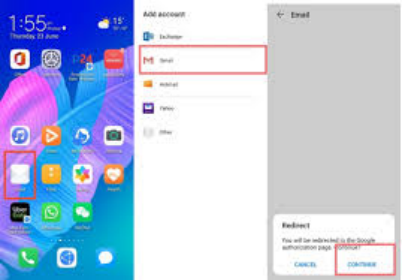Is the HUAWEI Band 10 Worth the Upgrade from Band 9?
522
25/04/2025

Upgrading your phone is a decision that goes beyond the allure of the latest model. It involves evaluating the current performance of your device, understanding your needs, and knowing the signs that indicate it’s time for an upgrade. This comprehensive guide will help you make an informed decision.
Recognizing the tipping point for an upgrade is crucial to ensure you’re getting the most out of your device without unnecessary frustration. Several signs might indicate it’s time for a new phone:
A deteriorating battery can turn the best of smartphones into a constant burden. If your phone can barely get through the day without needing a recharge, or if it powers down unexpectedly despite showing battery life remaining, these are clear indicators your battery is on its last legs. Newer models offer enhanced battery life with faster-charging technologies, making them more reliable.
Lagging, freezing, and slow response times disrupt the user experience significantly. If you notice your apps take longer to load, your phone struggles with simple tasks, or there’s a noticeable decrease in overall performance, these are sure signs your phone’s hardware and software are no longer up to par with modern standards.
Software updates not only enhance your phone’s security but also bring new features and improvements. If your smartphone no longer receives the latest OS updates, you might miss out on important security patches and new functionalities. This lack of updates can leave your device vulnerable and obsolete in terms of new applications and trends.
Choosing the right phone upgrade involves several considerations to ensure you get a device that meets your needs and preferences.
When upgrading, screen size and display quality are crucial. Consider how you use your phone daily—whether it’s for watching videos, reading, or gaming. Newer models often provide vibrant, high-resolution displays that make the viewing experience richer.
For many users, the camera is one of the most important phone features. Look for improvements such as higher megapixels, better low-light performance, optical image stabilization, and additional camera lenses that can offer wide-angle, macro, and telephoto capabilities. These advancements can dramatically enhance your photography experience.
A more powerful processor ensures your phone handles multitasking smoothly, supports demanding apps, and provides a seamless user experience. Upgrading to a device with a new-generation processor can significantly boost performance, making your daily interactions with your phone more enjoyable and efficient.
Before opting for an upgrade, consider if repairing your existing phone is a more viable option.
Evaluate the cost of necessary repairs like battery replacement or screen repair. If the cost is a fraction of a new phone’s price and extends the device’s life effectively, repairing might be worthwhile. However, if repairs are costly and frequent, it may be more cost-effective to invest in a new device.
Assess the overall condition and longevity of your current phone. If it’s relatively new but encountering minor issues, repairs might be sufficient. However, if your phone is old and experiencing multiple problems, an upgrade is likely the better option to avoid ongoing frustrations.
Switching brands can be a major change, but it has its own set of advantages and potential disadvantages.
Switching brands might provide access to better features, different operating systems, and new ecosystems that better cater to your needs. You might find more innovation, better customer support, or improved compatibility with other devices you own, making the transition beneficial.
Switching brands can come with a learning curve as you adapt to a new interface, unique features, and different ecosystems. Additionally, transferring data and ensuring compatibility with your other devices might pose challenges, which should be considered before making the switch.
Security Issues
When switching to a new brand of phone, there is one important thing to keep in mind: data security. Remember to delete important accounts and information from your old phone. For example, If you use huawei devices, you may wondering how to remove gmail account from huawei y9 2019. Before removing your Gmail account, ensure you back up important data associated with the account, such as contacts, emails, and documents. Double-check that you have access to other recovery options and that syncing with other services or accounts is not disrupted.

Deciding whether to upgrade your phone involves weighing the signs of your current device’s performance, understanding what to look for in a new device, and considering the cost and practicality of repairs versus getting a new phone. Use this guide to make an informed decision that best suits your needs and ensures you stay connected without frustration.
